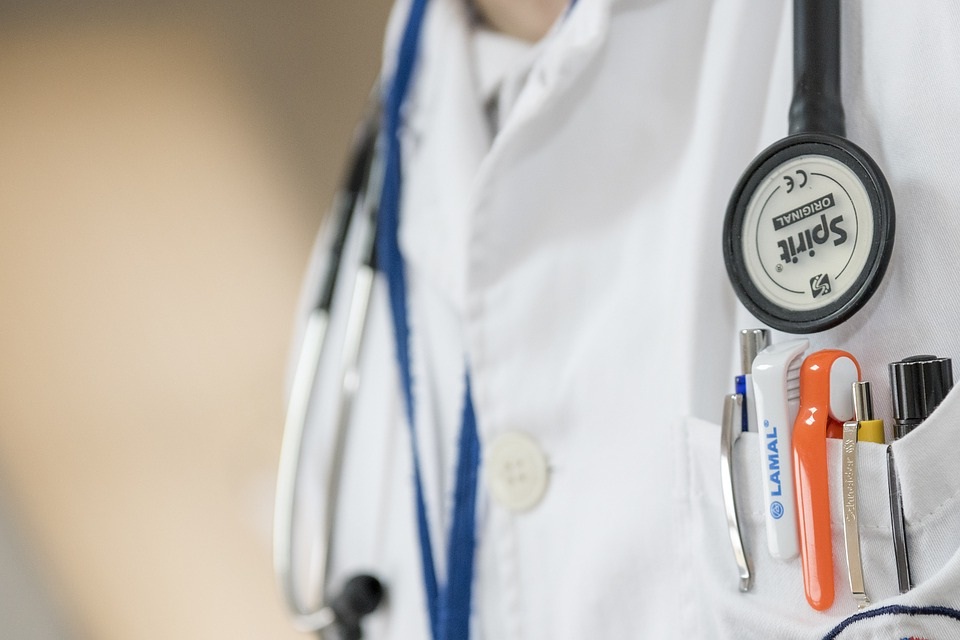New ways of working “but GP practices still open, protecting and caring”
GP practices are still open to treat patients, provide advice and issue prescriptions and GPs want anyone who has a health concern to feel reassured that they will be able to get an appointment and see a GP if necessary.

GP leaders, Dr Margaret O’Brien from the Health and Social Care Board, Dr Laurence Dorman from the Royal College of GPs and Dr Alan Stout from the British Medical Association are working together to reassure patients that GP surgeries are not closed.
Patients may be being seen differently – via phone or video link – but the service is most definitely still running, and has been throughout the entire pandemic.
Dr Margaret O’Brien, Head of GP services, Health and Social Care Board, stated, “We know some people think that GP practices are closed, and we want to correct that perception.
“GPs have been working throughout the pandemic, and like many other parts of the health sector, they had to change the way they do this.
“This means using the phone or video calls more, but those who need to be seen in person will still be seen,” she added.
Over the last six months, GPs across Northern Ireland have carried out 14,000 video consultations.
Alongside running their practice, GPs have also been working on the frontline of the pandemic response, in care homes and COVID Centres.
From April to August this year, GPs have dealt with more than 57,000 Covid-19 related enquiries and triaged or referred almost 12,000 patients to COVID Centres.
Dr Alan Stout from the BMA added, “GPs, with their knowledge of infection control and disease spread, were one of the first to recognise the effects the pandemic would have and took steps to protect patients and their staff.
“This meant reducing and limiting the number of people walking into surgeries, introducing telephone and then video consultations with patients and working with community pharmacy colleagues to enable repeat prescriptions to be collected,” he added.
Dr Laurence Dorman from the RCGP said, “One of the positives of using a telephone triage model is that patients often receive a same day call back from their GP, and together they decide the best way to deal with the problem presented.
“This may involve a remote, technology-enabled assessment or a face to face consultation where necessary.
“Triage is the process the health service uses to determine a patient’s condition in order to prioritise treatment.
“Often in general practice, this might mean that the receptionist asks you a few questions to decide how urgent your query is.
Article continues below
“I’m keen to stress that our reception staff are highly trained to deal with these queries and are bound by a professional code of practice whereby all information is confidential.
He added, “They will only ask about necessary details so that the doctor, nurse or pharmacist can prioritise your call.”
GPs are still carrying out review clinics for chronic conditions such as diabetes and asthma.
Once again, these consultations may be carried out via telephone, video or face to face depending on the patient’s needs.
The move towards greater use of technology has been generally welcomed by patients, especially those who just want some reassurance or need a prescription.
However, GPs recognise that a one-size-fits-all approach to using video or telephone consulting is neither helpful nor appropriate for all patients.
Initial discussions with patients help healthcare professionals to decide on the best way to assess and manage each individual patient.
Mr John Clarke, Chair of the RCGPNI Patient Group, added, “GP practices have changed how they work during the pandemic, and it means I have confidence that the practice is safe if I need to go in to see a healthcare professional face-to-face.
“Recently, when I felt unwell, I was pleased to speak to my GP quickly and get advice and reassurance over the phone.
“At the GPs request, the reception team then booked me in to see the practice nurse, so I could get my bloods checked, and my doctor followed up with results and necessary treatment over the phone.
“I was able to collect my prescription directly from the pharmacy.
John added, “The pandemic has changed life for us all, and I’m happy to know that my GP team are doing what they need to do to keep us safe.”
Here’s a reminder of what to do to ensure the process of visiting or contacting your GP practice goes smoothly:
1. Ring in advance;
2. If there is a buzzer at the entrance, ring before entering;
3. Wear a mask if attending the surgery;
4. When having a phone consultation, find somewhere quiet where you can speak aloud and have a note of what you want to discuss in front of you;
5. If you need a repeat prescription, some surgeries provide a separate phone number or an online ordering facility. Please check your own GP surgery’s website for details and recognise that at the moment, it might take slightly longer than usual for prescription requests to be completed.
Short URL: https://newrytimes.com/?p=72829














